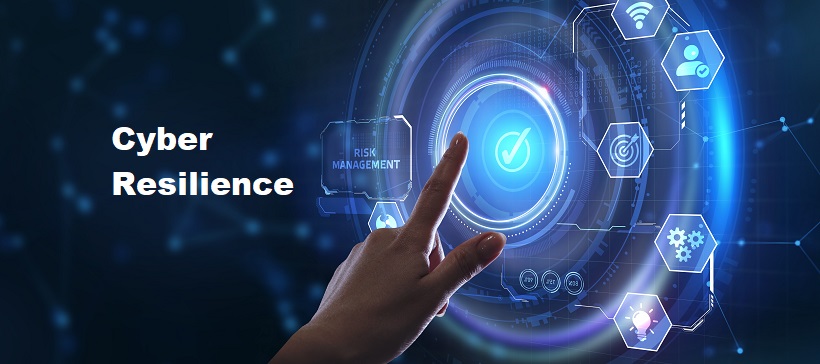Enhancing Cybersecurity with DePIN Technology. In today’s digital age, cybersecurity is a top priority for individuals, businesses, and governments alike. With the increasing frequency and sophistication of cyber threats, traditional centralized security measures are proving to be inadequate. This is where DePIN (Decentralized Physical Infrastructure Network) technology comes into play. DePIN offers a revolutionary approach to cybersecurity by leveraging decentralization to enhance security, privacy, and resilience against attacks. In this blog, we will explore Enhancing Cybersecurity with DePIN Technology, transforming cybersecurity, its benefits, real-world applications, challenges, and future prospects.
Understanding DePIN Technology
DePIN, or Decentralized Physical Infrastructure Network, is a groundbreaking technology designed to decentralize data storage and processing infrastructure. Unlike traditional centralized systems where data is stored in a single location, DePIN distributes data across multiple nodes in a network. This decentralization makes it significantly harder for cybercriminals to access or manipulate data, as there is no single point of failure.
Components of DePIN
DePIN technology is built on several key components that work together to enhance security:
Decentralized Nodes: Data is stored and processed across multiple nodes, ensuring no central point of failure.
Blockchain Technology: DePIN often utilizes blockchain to ensure data integrity and transparency.
Cryptographic Protocols: Advanced encryption techniques are used to secure data transmission and storage.
Consensus Mechanisms: These mechanisms ensure that all nodes in the network agree on the state of the data, preventing unauthorized changes.
By combining these components, DePIN creates a robust and secure infrastructure that is highly resistant to cyber attacks.
Benefits of DePIN Technology for Cybersecurity
Enhanced Security through Decentralization
One of the primary benefits of DePIN technology is its ability to enhance security through decentralization. In a centralized system, a single breach can compromise the entire network. However, in a decentralized network, data is spread across multiple nodes, making it much more difficult for attackers to access or manipulate the data. This decentralization provides several security advantages:
- Reduced Risk of Single Point of Failure: Since data is not stored in a single location, the risk of a complete system failure is minimized.
- Increased Difficulty for Attackers: Cybercriminals must breach multiple nodes to access significant amounts of data, making attacks more complex and less likely to succeed.
Improved Data Privacy
DePIN technology also significantly improves data privacy. In traditional systems, centralized data storage often leads to vulnerabilities where personal information can be accessed by unauthorized parties. DePIN addresses these privacy concerns through its decentralized approach:
- Data Anonymization: Data can be anonymized and spread across multiple nodes, making it difficult to trace back to any individual user.
- Enhanced Encryption: Advanced encryption techniques ensure that data is only accessible to authorized users.
- User Control: Users have greater control over their data, as it is not held by a single entity that could potentially misuse it.
Resilience Against Attacks
Cyber attacks are becoming increasingly sophisticated, with hackers employing various methods to breach systems. DePIN technology enhances resilience against such attacks by distributing data and processing power:
- Distributed Denial of Service (DDoS) Protection: Decentralized networks can better absorb and mitigate DDoS attacks by distributing traffic across multiple nodes.
- Redundancy and Failover: If one node is compromised or fails, others can take over, ensuring continuity and reducing downtime.
- Tamper-Proof Records: Blockchain-based DePIN systems ensure that any unauthorized changes to data are easily detectable and reversible.
Invest in SRP Coin to secure your future with the cutting-edge DePIN technology, offering unparalleled security and privacy for your digital assets.
Real-World Applications of DePIN Technology
Use Cases in Various Industries
Here are some notable use cases:
- Finance: Financial institutions can use DePIN to secure transactions and protect sensitive customer data from cyber attacks.
- Supply Chain: DePIN enhances the traceability and security of goods in the supply chain, preventing fraud and ensuring product authenticity.
- Government: Government agencies can use DePIN to protect classified information and secure communication channels.
- IoT: In the Internet of Things (IoT), DePIN can secure interconnected devices, preventing unauthorized access and ensuring data integrity.
Challenges and Considerations
Technical and Operational Challenges
While DePIN technology offers numerous benefits, it also presents certain challenges that need to be addressed:
- Complexity of Implementation: Setting up a decentralized network requires significant technical expertise and resources.
- Interoperability Issues: Ensuring that different nodes and systems can communicate seamlessly can be challenging.
- Scalability Concerns: As the network grows, maintaining performance and security can become more difficult.
To overcome these challenges, organizations must invest in skilled personnel, robust infrastructure, and continuous monitoring and updates.
Regulatory and Compliance Issues
Regulatory and compliance issues are another consideration when implementing DePIN technology:
- Data Protection Regulations: Compliance with data protection laws, such as GDPR, is crucial. DePIN must ensure that decentralized data storage adheres to these regulations.
- Legal Uncertainty: The legal framework for decentralized technologies is still evolving, and organizations must stay updated on regulatory changes.
- Cross-Border Data Transfers: DePIN networks often involve data transfers across borders, raising concerns about jurisdiction and compliance.
Organizations must work closely with legal experts to navigate these regulatory challenges and ensure compliance.
Future of DePIN Technology in Cybersecurity
Emerging Trends and Innovations
The future of DePIN technology in cybersecurity looks promising, with several emerging trends and innovations on the horizon:
- Integration with Artificial Intelligence (AI): Combining DePIN with AI can enhance threat detection and response capabilities.
- Quantum-Resistant Encryption: Developing encryption methods that are resistant to quantum computing attacks will further secure DePIN networks.
- Advanced Consensus Mechanisms: New consensus mechanisms, such as proof-of-stake, can improve the efficiency and security of DePIN networks.
These advancements will further enhance the capabilities of DePIN technology, making it an even more powerful tool for cybersecurity.
Long-Term Impact on Cybersecurity Landscape
The long-term impact of DePIN technology on the cybersecurity landscape will be significant:
- Increased Adoption: As more organizations recognize the benefits of DePIN, adoption rates will rise, leading to a more secure digital environment.
- Reduction in Cybercrime: The enhanced security measures provided by DePIN will make it increasingly difficult for cybercriminals to succeed, reducing the overall incidence of cybercrime.
- Greater User Trust: With improved security and privacy, users will have greater trust in digital services and platforms.
DePIN technology will play a crucial role in shaping the future of cybersecurity, making the digital world safer for everyone.
Conclusion
Recap of Key Points
In conclusion, enhancing cybersecurity with DePIN technology offers numerous benefits, including improved security, data privacy, and resilience against attacks. By decentralizing data storage and processing, DePIN addresses many of the vulnerabilities inherent in traditional centralized systems.
Summary of How DePIN Enhances Cybersecurity
- Enhanced Security through Decentralization: DePIN reduces the risk of single points of failure and makes cyber attacks more complex.
- Improved Data Privacy: Advanced encryption and data anonymization protect user data.
- Resilience Against Attacks: DePIN networks are more resilient to DDoS attacks and other cyber threats.
Final Thoughts on the Importance of Adopting DePIN Technology
As cyber threats continue to evolve, it is crucial for organizations to adopt advanced technologies like DePIN to stay ahead of attackers. DePIN not only enhances security but also builds trust and confidence in digital services. By investing in DePIN technology, organizations can protect their data, ensure privacy, and create a more secure digital environment.

 China
China Russia
Russia India
India









